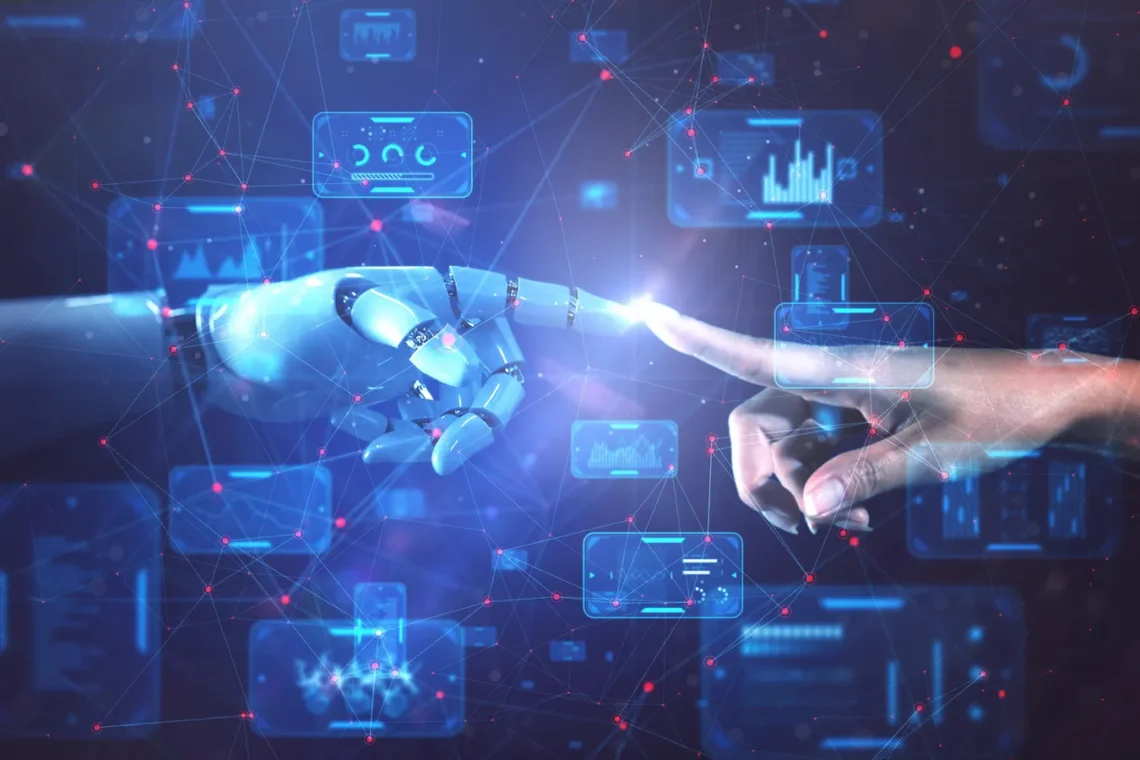As we move further into the 2020s, technology is advancing rapidly, and 2025 promises to be a pivotal year for innovation. From artificial intelligence to quantum computing, the tech trends emerging now will reshape industries, redefine how we live and work, and solve some of the world’s most pressing challenges. Here are the key technology trends to watch in 2025 that will change the world.
1. Artificial Intelligence (AI) and Machine Learning
Artificial Intelligence continues to evolve and expand its influence across various industries. In 2025, AI and machine learning will be more deeply integrated into everyday business processes, consumer products, and services. These technologies will be used to enhance personalization, automate complex tasks, and provide predictive insights that will transform customer experiences and business strategies.
Key Impacts:
-
Smarter Automation: AI will take over more sophisticated tasks in industries like healthcare, finance, and manufacturing, automating not just repetitive tasks but also decision-making processes.
-
AI Assistants: Personal AI assistants will become much more capable, handling everything from scheduling and research to personalized recommendations.
-
Predictive Analytics: AI-driven data analysis will allow businesses to predict trends and customer behavior with incredible accuracy, driving smarter marketing strategies and customer retention plans.
2. Quantum Computing
Quantum computing is expected to make significant strides by 2025, moving beyond theoretical research into real-world applications. Quantum computers, which use the principles of quantum mechanics, promise to solve complex problems that are currently impossible for traditional computers.
Key Impacts:
-
Drug Development: Quantum computing could revolutionize pharmaceuticals by simulating molecular structures to rapidly discover new drugs.
-
Cryptography: It will redefine data encryption, both by enhancing security and by posing new risks to current encryption methods.
-
Optimization Problems: Industries such as logistics, manufacturing, and finance will use quantum computing to optimize supply chains, production schedules, and investment strategies at a scale previously unachievable.
3. 5G and Beyond
5G networks are already starting to roll out, but by 2025, they will become widespread, enabling faster data transfer speeds, lower latency, and the ability to connect billions of devices. This will lay the foundation for new applications in industries such as autonomous vehicles, healthcare, and entertainment.
Key Impacts:
-
Autonomous Vehicles: 5G’s low latency will be crucial for the success of self-driving cars, allowing for real-time communication between vehicles, infrastructure, and traffic management systems.
-
Smart Cities: 5G will enable the growth of smart cities, with real-time monitoring of traffic, air quality, energy use, and public safety systems, leading to more efficient and sustainable urban environments.
-
Enhanced Mobile Experiences: Consumers will experience seamless mobile gaming, virtual reality (VR), and augmented reality (AR) experiences with ultra-fast internet speeds and reduced lag.
4. Blockchain and Decentralized Finance (DeFi)
Blockchain technology is expected to mature significantly by 2025, extending far beyond cryptocurrency into broader applications across various sectors. DeFi, built on blockchain, will revolutionize the financial industry by providing decentralized alternatives to traditional banking systems.
Key Impacts:
-
Decentralized Finance (DeFi): Blockchain-based DeFi platforms will eliminate intermediaries, allowing for peer-to-peer financial transactions, lending, and investing without traditional banks or brokers.
-
Supply Chain Transparency: Blockchain’s ability to track goods and verify their origins will bring greater transparency and accountability to supply chains across industries, from food to fashion.
-
Digital Identities: Blockchain will facilitate the creation of secure, digital identities that will help prevent fraud and improve privacy in both the public and private sectors.
5. Autonomous Vehicles and Drones
The future of transportation is shifting towards autonomy, and by 2025, autonomous vehicles (AVs) and drones will have become commonplace in many parts of the world. Self-driving cars, trucks, and drones will transform industries like logistics, public transport, and delivery services.
Key Impacts:
-
Transportation: AVs will reduce traffic congestion and accidents, improve efficiency, and offer mobility solutions for the elderly and disabled.
-
Supply Chain and Delivery: Drones and autonomous vehicles will revolutionize supply chains by offering faster, cheaper, and more efficient delivery methods, particularly in urban and remote areas.
-
Urban Mobility: Self-driving taxis and shared electric vehicles will change how people commute, reducing the need for personal car ownership in cities.
6. Extended Reality (XR) and the Metaverse
Extended Reality (XR), which includes augmented reality (AR), virtual reality (VR), and mixed reality (MR), will become much more advanced in 2025. These technologies will be integrated into everything from entertainment to education, creating immersive digital experiences that blend the physical and virtual worlds.
Key Impacts:
-
Workplace Collaboration: XR will transform how people work, enabling remote teams to collaborate in virtual environments as if they were physically together, improving communication and productivity.
-
Education and Training: Virtual and augmented reality will create immersive learning experiences, allowing students to interact with complex concepts and training simulations in entirely new ways.
-
The Metaverse: A fully immersive virtual world, known as the Metaverse, will emerge, offering new opportunities for social interaction, entertainment, business, and commerce.
7. Sustainable and Green Technologies
Sustainability will be at the forefront of technological development in 2025. As the world faces the challenges of climate change and resource depletion, green technologies will emerge to reduce energy consumption, promote renewable energy sources, and create eco-friendly products and processes.
Key Impacts:
-
Clean Energy: Solar, wind, and other renewable energy technologies will become more efficient and affordable, reducing reliance on fossil fuels and helping to address climate change.
-
Energy Storage: Advancements in battery technology will improve the storage of renewable energy, enabling more widespread use of solar and wind energy even when the sun isn’t shining or the wind isn’t blowing.
-
Sustainable Manufacturing: The development of eco-friendly materials and zero-waste production processes will transform industries, from fashion to electronics, making them more sustainable.
8. Biotechnology and Genetic Engineering
By 2025, biotechnology will advance to the point where gene editing and biotechnology applications become integral to healthcare, agriculture, and environmental conservation. Technologies like CRISPR will allow for precise genetic modifications that can enhance human health and solve global challenges.
Key Impacts:
-
Medical Advancements: Gene editing could lead to the eradication of genetic disorders, personalized medicine, and faster development of vaccines and treatments for diseases.
-
Sustainable Agriculture: Biotechnology will enable crops to be engineered for better yield, drought resistance, and nutritional content, helping to address food security issues globally.
-
Environmental Impact: Genetic engineering could help in the conservation of endangered species and the restoration of ecosystems by modifying organisms to adapt to changing climates or polluted environments.
9. Wearable Health Tech
In 2025, wearable health tech will become even more advanced, providing real-time health monitoring, disease detection, and personalized wellness insights. These devices will be able to track a wider range of vital signs and offer proactive health recommendations.
Key Impacts:
-
Chronic Disease Management: Wearables will help people manage chronic conditions like diabetes, heart disease, and asthma by continuously monitoring health metrics and alerting users to potential issues.
-
Preventative Healthcare: By collecting real-time data, wearables can detect early signs of health problems and provide users with the information they need to prevent serious issues.
-
Mental Health: Wearables will track not just physical health but mental health as well, offering insights into stress, sleep patterns, and emotional wellbeing.
Conclusion
Technology in 2025 will undoubtedly change the world in ways we’re only beginning to understand. From AI and quantum computing to autonomous vehicles and sustainable energy, the next few years will see groundbreaking innovations that will transform industries, improve daily life, and tackle some of the world’s biggest challenges. Embracing these emerging technologies will not only offer new business opportunities but will also shape a smarter, more connected, and sustainable future for all.




